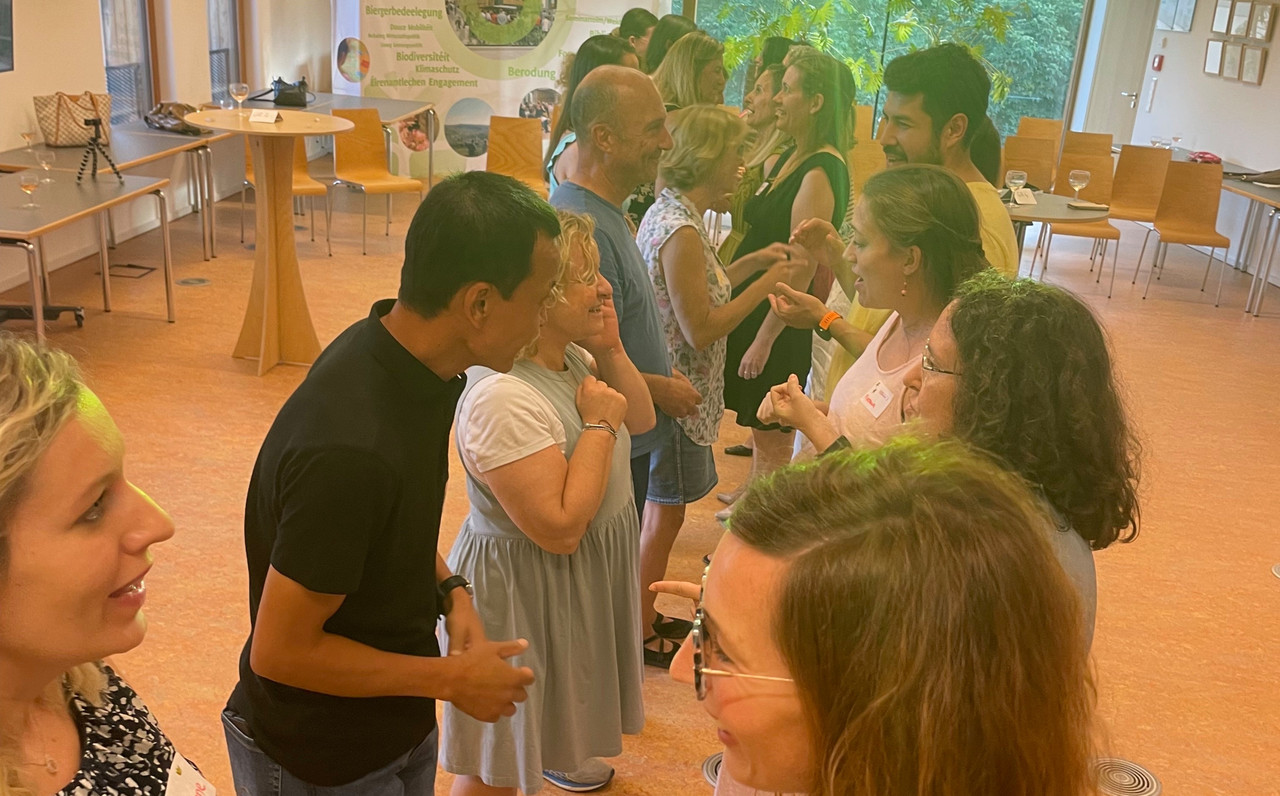Lydia Linna: Can you tell us about positive psychology?
Dana Moldoveanu Brandes: Positive psychology is part of psychology. As a field, psychology started in the mid-1800s for three main purposes: to investigate mental illnesses; to study extraordinary minds; and to better understand people. Following the two world wars, the primary goals of psychology remained anchored in the first objective: understanding mental illness and treating it.
And this remained the case--with a few exceptions of social researchers who were looking into subjects such as creativity and humour, or play and flow--until 1998.
1998. That’s relatively recent. What happened then?
Martin Seligman took over the presidency of the American Psychology Association and decided to focus on positive psychology. One of his first projects was to produce a counterpart of the [Diagnostic and Statistical Manual of Mental Disorders] manual, which rates all the diseases and symptoms and is used by clinical psychologists or psychiatrists.
Putting together this counterpart manual for positive psychology took a few years and a number of researchers. They looked into all religions and philosophies, and decided on a set of character strengths, a set of values that were universally accepted. From there, they focused on the purpose of positive emotions.
How did PPL get started?
We started in 2019, because we realised that even in a very small country like Luxembourg, there were a few people who had graduated from a master’s programme in applied positive psychology. People had either come from Anglia Ruskin in Cambridge or East London, which were the two main universities that offered courses on positive psychology.
Now there are other programmes in the UK, and even one in Metz, but at the time, it was an unknown field of research and application. Some professors at the University of Luxembourg deal with well-being, but there isn’t very much on positive psychology.
So we said--why not? We wanted to use this organisation to and how we can use it in our daily life.
We wanted to use this organisation to promote positive psychology and how we can use it in our daily life.
What do your main activities focus on?
We have a different theme every year based on the PERMA model. PERMA stands for positive emotions, engagement, relationship, meaning, and achievement. This year’s theme centres around “relationship.”
During our workshops, we cover the effect of relationships on mental health, as well as practical techniques that can be used to improve the quality of relationships with family. But the same techniques apply to colleagues at work and with other important people in our lives. The quality of our relationships with others is at the core of our well-being over the long term.
In the coming weeks, PPL is running a programme that focuses on resilience and well-being for parents. Can you tell us more about these sessions?
Up until last year, everything we did was pro bono. However, following the pandemic, the Œuvre Grande Duchesse Charlotte [a public establishment that finances projects that serve the general interest in Luxembourg] conducted a campaign to provide mental health services for young people suffering from the consequences of the covid crisis. Since we work mainly with adults, we applied for--and received--subsidies to develop this series of .
The programme explores themes important for our well-being and resilience such as positive emotions, character strengths, PERMA, psychological safety, and taking care of body and mind. PPL delivered this series of workshops eight times in the past year, and the events that we are running in the next few weeks are part of the last series.
Participants have been very diverse: we have had a balanced mix of men and women, of all ages, backgrounds and nationalities. Some were “fresh parents” with very young children, while others had university-aged children who returned to their parents during the pandemic, resulting in changed dynamics at home.
Furthermore, we have also trained some of the participants as facilitators, which will allow them to carry out similar programmes, but in a more casual manner, promoting resilience in their communities.
The quality of our relationships with others is at the core of our well-being over the long term.
How does PPL hope to develop in the future?
At the moment, all of our resilience and well-being programmes are group-based. In the future, we would like to provide individual sessions as well, especially for people who cannot afford to go to a coach or a psychologist in Luxembourg.
We are also trying to see if we can work with the family and integration ministry to provide coaching through positive psychology, mediation, and ways to improve well-being and resolve conflicts within a family.
What are some basic exercises or activities that can help maintain mental health?
In positive psychology, we call these positive psychology interventions, or PPIs. These can include exercises like writing a gratitude letter to people who have supported you or taking time to write down three good things that happened to you and why they were good. Research shows that these contribute to an increase in well-being and help develop resilience.
Now there is a lot of research related to altruism and doing good things that benefit not just yourself, but your community--family, friends, acquaintances, your team at work, or even an entire city--and how this can improve well-being.
Read also


